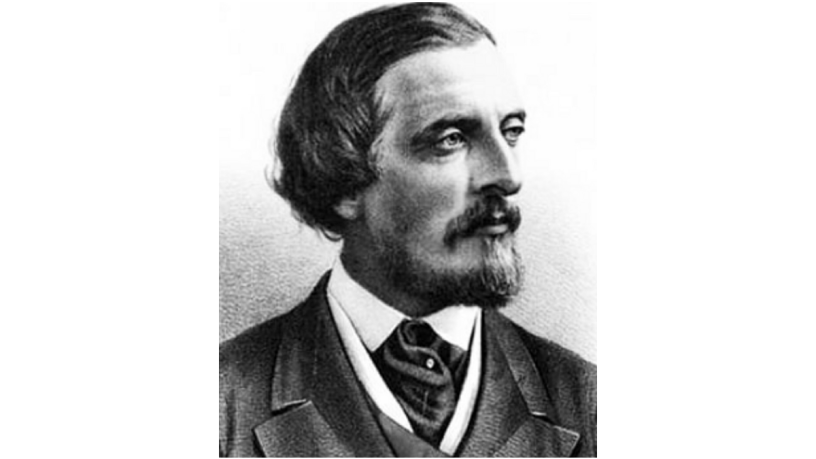langerhanscellhistiocytosis.org – Lord Dufferin, also known as Frederick Temple Blackwood, served as the Governor General of Canada from 1872 to 1878. His tenure was marked by important milestones in Canada’s development, particularly as the country continued to mature politically, economically, and socially. Known for his intellectual prowess, diplomatic skill, and commitment to strengthening the ties between Canada and the British Empire, Lord Dufferin played a key role in the consolidation of Canadian unity and the shaping of its national identity during the late 19th century.
Early Life and Background
Frederick Temple Blackwood was born on June 21, 1826, in Ireland. He was educated at Eton College and later at Oxford University, where he developed a reputation as a talented scholar and writer. Lord Dufferin’s early career included time in the British Army, and he later turned to diplomacy. His experiences as a diplomat and his involvement in British politics prepared him for his later role as Governor General of Canada. Prior to his appointment, he had served in various positions, including as the British Ambassador to Russia, and had gained valuable insights into international relations and governance.
His appointment as Governor General was part of the British government’s effort to provide strong leadership and maintain imperial ties as Canada grew in importance as a self-governing nation within the Empire.
Appointment as Governor General
In 1872, Lord Dufferin was appointed the fifth Governor General of Canada, succeeding Lord Lisgar. His tenure came at a time when the Dominion was continuing to establish itself as a self-governing country with increasingly complex political dynamics. Dufferin’s intellectual and diplomatic background made him well-suited to address the challenges of representing the British Crown while also fostering the development of Canada’s nascent national identity.
Lord Dufferin’s approach to his role was hands-on and personal, setting him apart from some of his predecessors. He immersed himself in Canadian life, traveling extensively throughout the country to better understand its people, geography, and politics. His efforts to engage with the diverse regions of Canada would have a significant impact on his leadership style and effectiveness.
Political and Social Challenges
During Lord Dufferin’s time in office, Canada faced several important political and social challenges. One of the most pressing issues was the question of relations between French and English Canadians, particularly in the province of Quebec. While much progress had been made toward national unity since Confederation in 1867, tensions still existed over language rights, religious freedoms, and regional autonomy.
Lord Dufferin worked hard to promote harmony between Canada’s diverse cultural communities. He was known for his respectful approach to Quebec’s French-speaking population and for recognizing the importance of preserving French culture and language within the broader Canadian fabric. His efforts to build bridges between English and French Canadians were seen as essential to maintaining national unity.
Another significant challenge during his time as Governor General was the continued development of Canada’s infrastructure, particularly in relation to the expansion of the Canadian Pacific Railway. The completion of the railway was crucial to linking the eastern and western provinces, fostering economic development, and strengthening Canada’s national identity. Lord Dufferin supported this endeavor, which would prove to be a defining feature of Canada’s growth as a unified nation.
Contributions to Canadian Unity
One of Lord Dufferin’s most enduring legacies was his role in fostering Canadian unity and encouraging a sense of national pride. His approach to governance was one of inclusiveness and respect for the country’s diverse regions and peoples. Dufferin’s travels across Canada helped to establish personal connections with Canadians from all walks of life, from urban elites to rural communities, from English-speaking Protestants to French-speaking Catholics.
In addition to his diplomatic and political work, Lord Dufferin was also a patron of the arts and culture. He took an interest in Canada’s developing cultural scene and was supportive of institutions that promoted Canadian identity. His influence helped to encourage a sense of Canadian nationalism, which was crucial as the country moved toward greater independence within the British Empire.
The Northwest Rebellions and Lord Dufferin’s Role
Though Lord Dufferin’s tenure was largely marked by peaceful growth, he did face the challenge of dealing with the aftermath of the Northwest Rebellions. The Metis and Indigenous peoples in the western territories had been agitating for rights and recognition, and tensions were rising.
In 1873, the creation of the North-West Mounted Police (later the Royal Canadian Mounted Police) was initiated, largely as a response to unrest in the western territories. While the rebellion itself occurred after Dufferin’s term, the groundwork for the establishment of the police force was laid during his administration. This step was seen as a crucial move in maintaining order and ensuring the peaceful settlement of the western territories, which would later be integral to Canada’s development.
Conclusion
Lord Dufferin’s time as Governor General of Canada was one of significant transformation for the young nation. His intellectual acumen, diplomatic expertise, and commitment to fostering unity across Canada’s diverse regions played a pivotal role in shaping the country’s early development. Through his efforts to promote both cultural respect and economic expansion, Lord Dufferin left a lasting legacy in Canada’s journey toward becoming a fully-fledged nation within the British Empire. His tenure was marked by progress, diplomacy, and a strengthening of the national identity, which laid the foundation for the future growth of Canada as an independent country.

